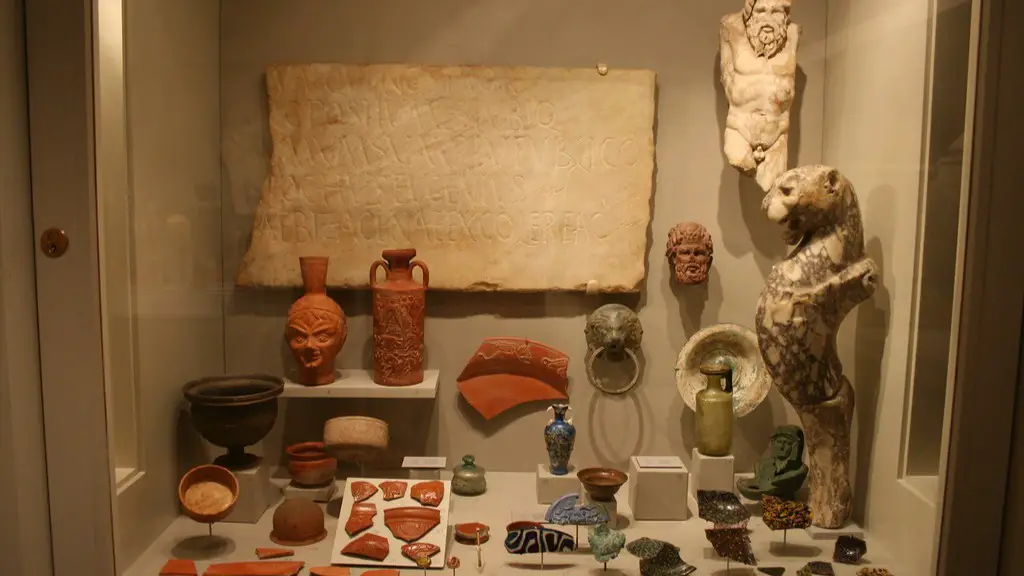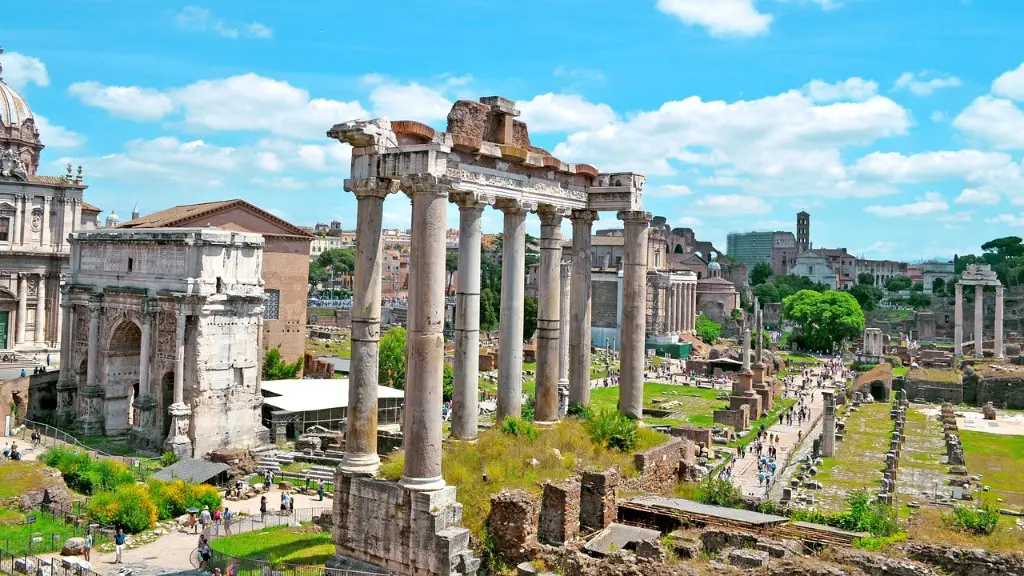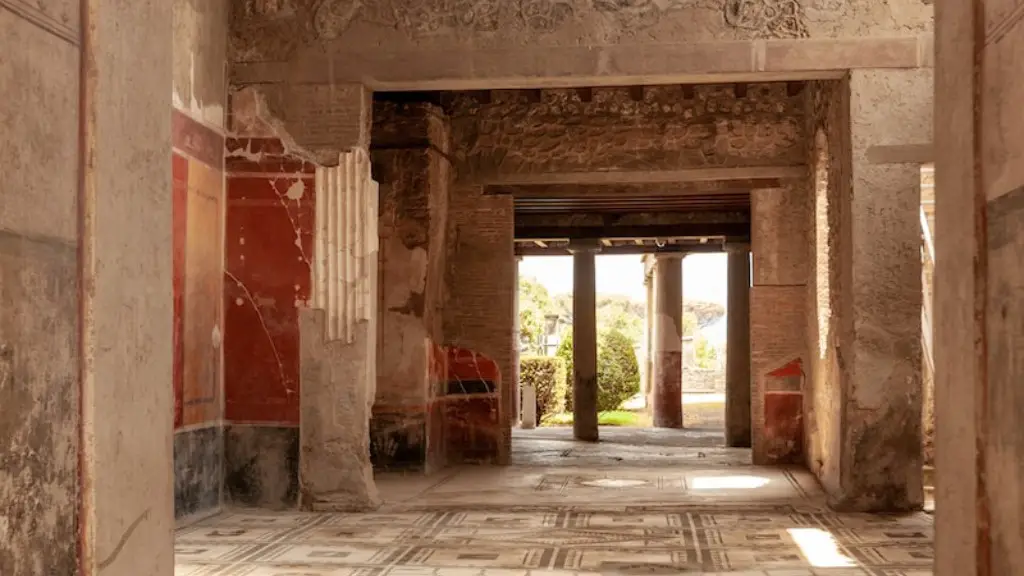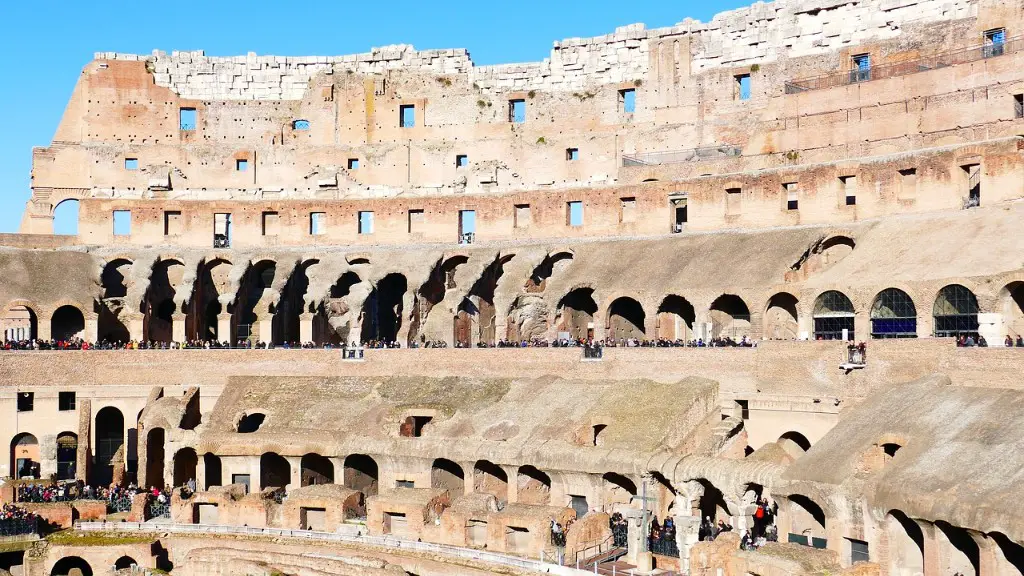Ancient Rome was one of the most powerful empires in history and a recognised superpower for over 500 years. It had a unique cultural, political and social system in which the citizens had the power to influence policy and to vote for their representatives. Political power in Rome depended on the citizens and their capability to influence the government. In this article we will discuss who qualified to be a citizen ofAncient Rome and what rights they had.
In the beginning, Rome was only populated by theLatins, its native inhabitants.In order for someone to qualify for citizenship inAncient Rome,they needed to be a Roman citizen. This was usually achieved through birthright or through adoption. Roman laws were somewhat relaxed during its period of expansion, allowing some non-Romans to become citizens.This included people from the provinces of the empire, immigrants, and former slaves.
The journey to becoming a Citizen started with the status ofPeregrinus, which was granted after a certain period of time, depending on the case. This allowed the applicant to carry out most of the activities that a citizen could, such as owning a house, attending public events and religious feasts, and participating in debates. The next step was to appear before the Roman Senate, and the potential citizen was then subjected to rigorous tests, including tests on their knowledge of Roman laws, customs and religion.
Once approved by the Senate, the applicant received an official document granting them their own citizenship. This document included their rights and obligations as a Roman citizen. Firstly, as a Citizen of Rome, the individual was allowed to vote, and their votes had the same value as any other citizen’s. Other rights included the ability to run for public office, to own land, and to participate in public events and religious feasts.
Citizens were also exempt from some taxes, such as those levied on non-Roman citizens, although they had to pay the tribute tax. They were also subject to certain obligations, such as military service, certain types of payment, such as taxes and fines, and the performance of certain rituals, such as sacrificing to the Gods.
It was an honour to become a citizen of Rome, and it came with many privileges and responsibilities. It was also very difficult to obtain citizenship, as the process was tedious and lengthy. Nevertheless, many foreigners from the provinces or from abroad found the process to be worth their while, as they were granted many rights and freedoms as citizens of Rome.
Women
Women rarely became citizens in Ancient Rome.As the power of patria potestas allowed the members of the family, usually the head of the family,to dispose the goods of their dependents( wife and children included),women did not have much of a say in their civic duties.Butthat doesnot mean that they were not acknowledged by the society.Although they did not have the right to vote,ROMAN WOMEN , especially those from privileged classes ,were admired by the people and some even achieved fame as poets, authors or musicians.
They were expected to be married (most women were married by the age of twenty one)with either one or two husbands who would expect loyalty,obedience and respect from them. Despite not being able to vote or enact laws,women were be regarded as part of the state in a spiritual way, taking their part in the rites,having their own festivals and social gatherings.
The Former Slave
The slavery in Ancient Rome came from prisoners taken in wars or bought in slave markets. They were treated harshly and not recognised by the state as citizens, not even having the right to marry freely. Often they were forced to do hard labor or used as gladiators in entertainment events.
Things changed in cases when these slaves were freed by their masters.Most slaves in Rome were technically free upon their freedom but were allowed to become full citizens by the rules set by their master. This could take place between two individuals in the family, mostly with children and wife of the former slave. This process was called manumission and was widely used in Ancient Rome to grant slaves full citizenship.
In order to be recognized by the law as a legitimate Roman citizen, the freedman was obliged to register with the civil office. In turn, the freedman gained full citizenship rights along with this registration.This included the right to vote and hold public office, own land, marry, practice their trade and worship freely. This process greatly helped in the integration of freed slaves into Roman society.
The Provincial People
Rome was often involved in military campaigns in order to expand and gain more lands.The conquered peoples were given the same rights as other citizens residing in Rome. This was known as the ‘Civitas Civilis’, which granted Roman law to all regions of Rome, granting people within those regions the same rights as Roman citizens.
Roman citizens who lived outside Rome, however, were given different rights depending on the province in which they resided. They were not granted the full range of rights enjoyed by Romancitizens, such as the right to vote and run for office, but they were exempt from most taxes and allowed to own land and businesses.
The Roman government often used this as a way to show they support to the regions they had recently acquired by granting them some privileges of Roman citizenship. It was seen as a sign of trust, and it helped to secure the loyalty of these newcitizens, much to the benefit of the Roman Empire.
Religious Freedom
The Roman Empire was made up of many different religions and beliefs, and religious freedom was granted to all of its citizens.Religious minorities were allowed to practice their own beliefs and carryout ceremonial rituals. People of all faiths could attend religious gatherings and be present despite having different beliefs.
The Romans believed that having a variety of religions in the empire was beneficial for order and stability as it allowed people from different backgrounds to coexist peacefully. This religious tolerance was a cornerstone of the Roman Empire and helped it become a superpower.
Immigrants
Members of the Roman Empire were subject to immigration from different countries.Rome was open to foreign cultures, and the immigration process was not overly complicated. People from other countries could settle in a Roman city without prejudice, and their rights depended on the city in which they settled.These immigrants were not granted citizenship right away, but with time, many were able to become full Roman citizens.
The immigration process was quite simple, as immigrants were required only to register with the local authorities and pay a set fee. Once registered, immigrants were allowed to take part in local festivals, as well as in debates and political gatherings.
The Roman army was open to foreigners from a young age and allowed them to join forces if they complied with the set standards and abided by the law. Those immigrants who ultimately gained citizenship through military service were known as Roman auxiliaries and were given a host of benefits and rights.
Conclusion
In conclusion, becoming a citizen of Ancient Rome was a difficult task, but rewarding.The power of patria potestas meant that the head of the household could decide who could become a citizen, while the process of manumission allowed former slaves to become citizens as well. The Roman Empire showed great tolerance towards other religions, and allowed immigrants to settle in their cities and eventually obtain citizenship. Lastly, the rights which a Roman citizen was given were numerous, offering them the ability to live a prosperous life, with the freedom to vote, own property, practicelaw and worship freely.





